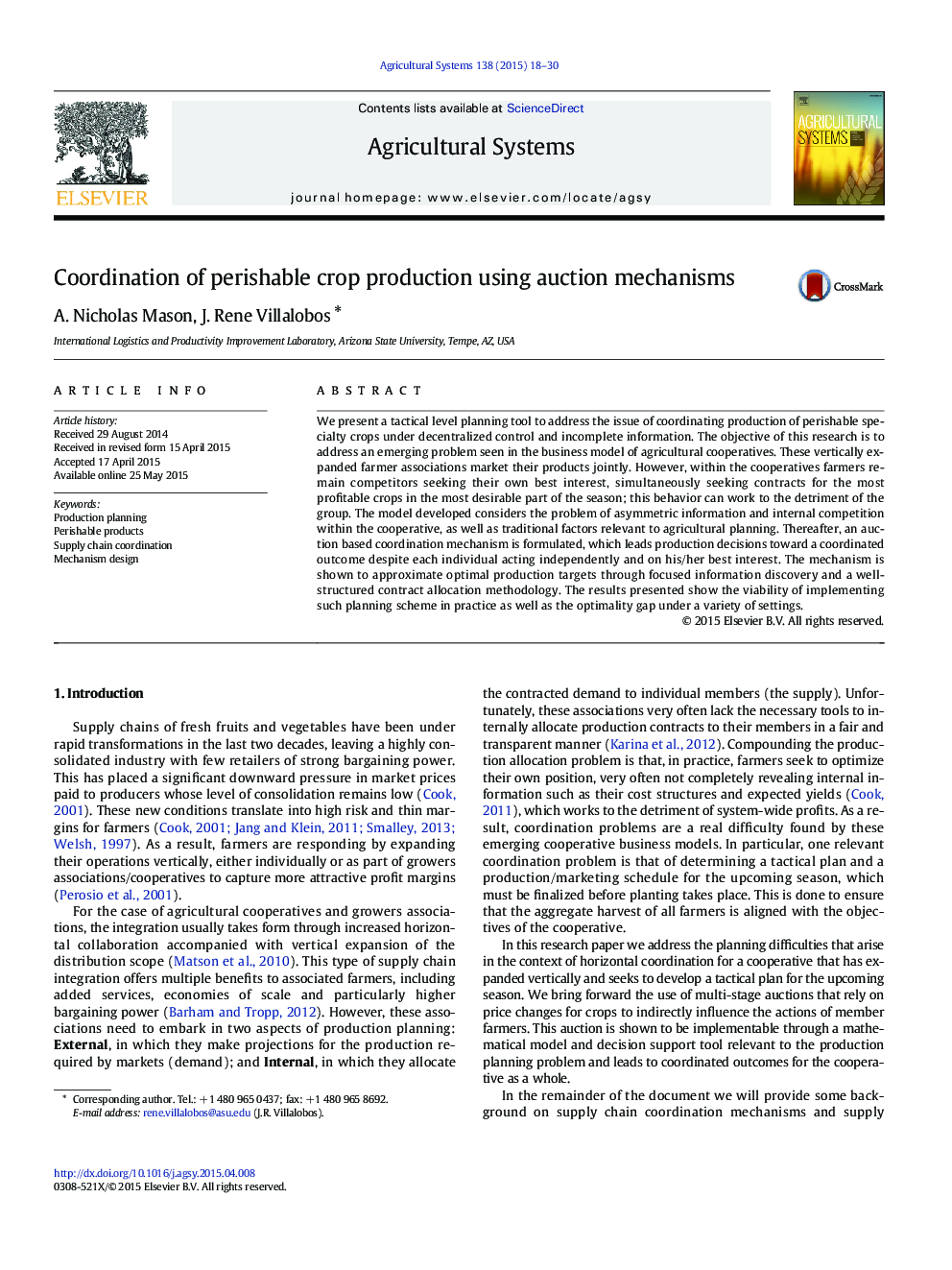| Article ID | Journal | Published Year | Pages | File Type |
|---|---|---|---|---|
| 4491177 | Agricultural Systems | 2015 | 13 Pages |
•The production of fresh produce is subject to high levels of uncertainty.•Small farmers are finding it increasingly difficult to compete by themselves.•Groups of farmers struggle to reach coordinated outcomes.•Auction mechanisms can coordinate and optimize these farmer groups.•Farmers can be coordinated despite information asymmetry and competitive behavior.
We present a tactical level planning tool to address the issue of coordinating production of perishable specialty crops under decentralized control and incomplete information. The objective of this research is to address an emerging problem seen in the business model of agricultural cooperatives. These vertically expanded farmer associations market their products jointly. However, within the cooperatives farmers remain competitors seeking their own best interest, simultaneously seeking contracts for the most profitable crops in the most desirable part of the season; this behavior can work to the detriment of the group. The model developed considers the problem of asymmetric information and internal competition within the cooperative, as well as traditional factors relevant to agricultural planning. Thereafter, an auction based coordination mechanism is formulated, which leads production decisions toward a coordinated outcome despite each individual acting independently and on his/her best interest. The mechanism is shown to approximate optimal production targets through focused information discovery and a well-structured contract allocation methodology. The results presented show the viability of implementing such planning scheme in practice as well as the optimality gap under a variety of settings.
